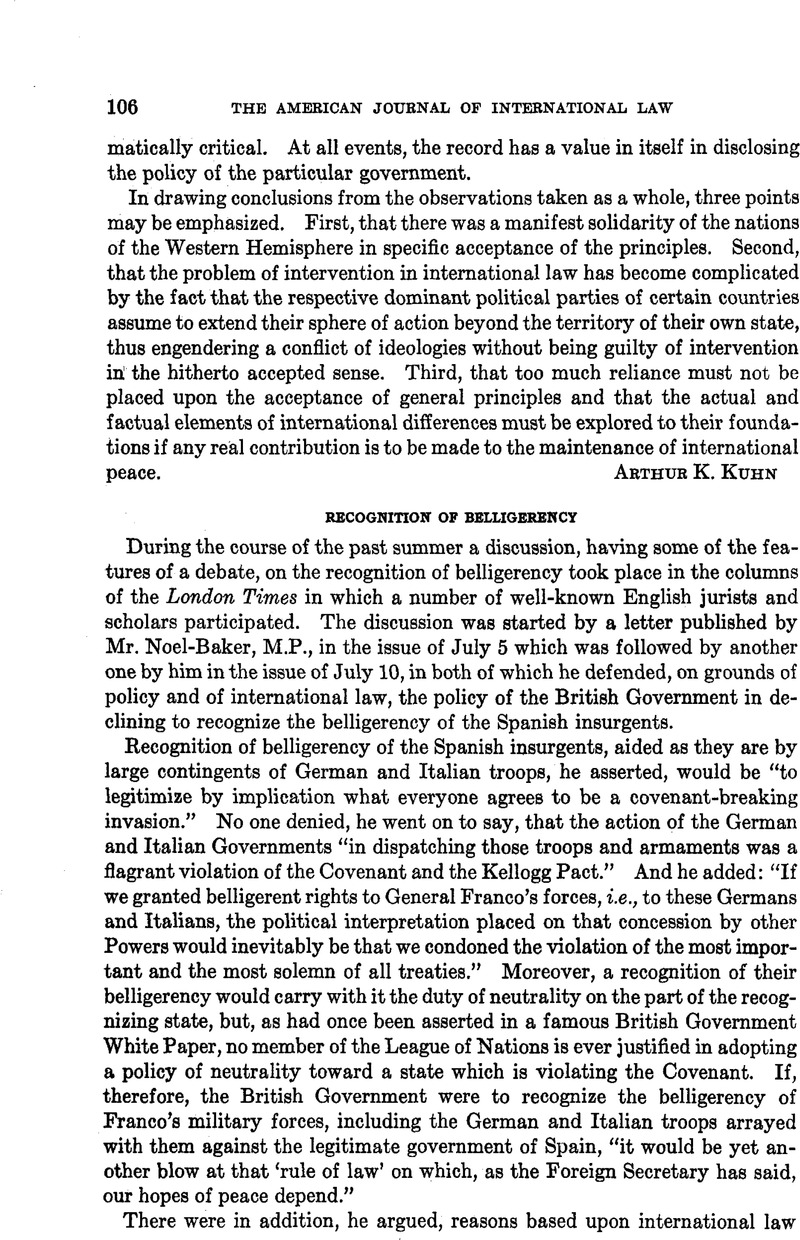Published online by Cambridge University Press: 12 April 2017

1 This point is further developed by Professor Smith, in his article “Some Problems of the Spanish Civil War”, in the British Year Book of International Law for 1937, p. 26 ff.Google Scholar
2 Dana's Wheaton, edition by Wilson, , p. 29, n. 15.Google Scholar
3 International Law, 3rd ed., p. 34.
4 International Law (1910), Part I, pp. 54–55.
5 As to the question of legal right there is little controversy among the better known writers on international law. McNair in a recent article entitled “The Law Relating to the Civil War in Spain” (Law Quarterly Review, Oct., 1937, p. 471 ff.), expresses the opinion that those who maintain that insurgents who fulfill certain tests have a legal right to be recognized as belligerents “have not made out their case” and that the balance of evidence is against their view. As to whether they have anything in the nature of a moral right to be recognized, he expresses no opinion. Other writers, Hyde, Oppenheim, Lauterpacht, and Wilson, for example, do not discuss the question of right, apparently assuming that recognition is entirely a matter of discretion on the part of foreign states.